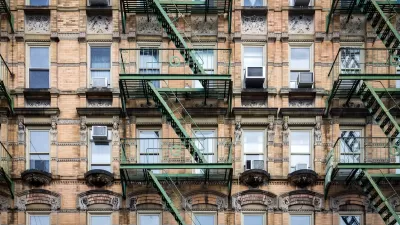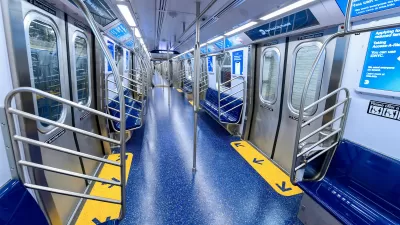In need of at least $230 million for system-wide repairs, NYC libraries, which receive less than $15 million a year from the city, look to strike land deals with private developers, report Joseph Berger and Al Baker.
A relatively new practice of releasing public property assets to private developers with the caveat of preserving public services is picking up speed in NYC.
Cash-strapped public agencies, including the library, school and municipal system, are exchanging land and old buildings for new mixed-use developments that also integrate these former functions, usually on a public ground floor.
Several libraries in Brooklyn and Manhattan have already struck bargains with developers, including with major DUMBO and now Williamsburg player Two Trees, with the first Andrew Carnegie-financed library in Brooklyn slated for demolition.
Some residents object to the plans, which would upgrade ailing public service systems at no public cost, on the grounds that neighborhood landmarks would be lost to high-rise redevelopment and extended closures would make access to public services more complicated during the reconstruction process.
Planning experts, including Mitchell Moss at NYU and David Giles at the Center for an Urban Future, support the financing strategy because it would restore and upgrade public amenities across the board without raising taxes.
FULL STORY: Saving Schools and libraries by giving up the land they sit on

Maui's Vacation Rental Debate Turns Ugly
Verbal attacks, misinformation campaigns and fistfights plague a high-stakes debate to convert thousands of vacation rentals into long-term housing.

Planetizen Federal Action Tracker
A weekly monitor of how Trump’s orders and actions are impacting planners and planning in America.

Chicago’s Ghost Rails
Just beneath the surface of the modern city lie the remnants of its expansive early 20th-century streetcar system.

Bend, Oregon Zoning Reforms Prioritize Small-Scale Housing
The city altered its zoning code to allow multi-family housing and eliminated parking mandates citywide.

Amtrak Cutting Jobs, Funding to High-Speed Rail
The agency plans to cut 10 percent of its workforce and has confirmed it will not fund new high-speed rail projects.

LA Denies Basic Services to Unhoused Residents
The city has repeatedly failed to respond to requests for trash pickup at encampment sites, and eliminated a program that provided mobile showers and toilets.
Urban Design for Planners 1: Software Tools
This six-course series explores essential urban design concepts using open source software and equips planners with the tools they need to participate fully in the urban design process.
Planning for Universal Design
Learn the tools for implementing Universal Design in planning regulations.
planning NEXT
Appalachian Highlands Housing Partners
Mpact (founded as Rail~Volution)
City of Camden Redevelopment Agency
City of Astoria
City of Portland
City of Laramie





























